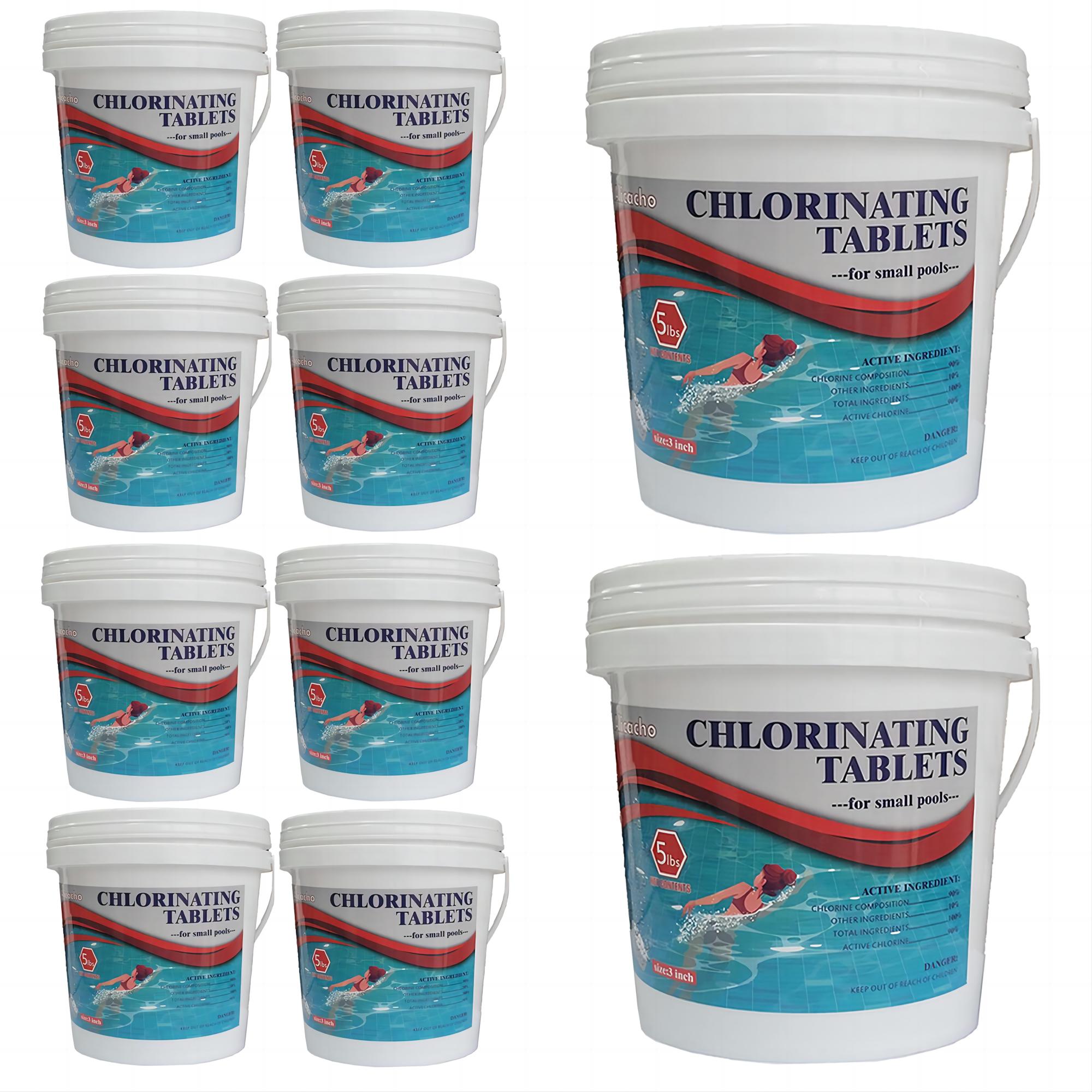If you search over the web about common pool options, you would frequently see saltwater pool vs chlorine pool. Getting the right ideas about the said pools, such as the pros and cons of each one, and different factors to consider when choosing would help.
It is necessary to understand what is saltwater pools and chlorine pools. As a future pool owner, you should also put into mind your swimming preferences so you can get to enjoy the best experiences out of your backyard pool. When choosing the right pool, there are lots of factors to consider, and we will go down to each of them as we go along the whole post, below.
Part 1. The Difference Between Saltwater Pools And Chlorine Pools
When doing a comparison between things, defining each of them is needed to have a fine understanding of each one. And this would be best as we compare saltwater pool vs chlorine pool.
If you prefer having wonderful and fun days with less skin and eye irritation, and you also want to dip in a pool that has water that is softer to touch, choose a saltwater pool. Some believe that saltwater pools do not have chlorine content, the truth is, it has, but is lower in value. Also, the way chlorine that chlorine is introduced to the water is different when compared with chlorine pools. Here, you do not need to add chlorine to chlorinate pools, you can just add salt. Through the use of a salt chlorine generator, salt that is not directly added to the pool will be converted into chlorine. This type of pool needs a filtration system, it only differs a little compared to that of a chlorinated pool. Also, when you shop for filters suited for your saltwater, always choose compatible ones.
On the other hand, a chlorine pool will require you to add chlorine in different forms, it can be granular, liquid, or tablet form. Chlorine will keep your pools well sanitized, killing all the harmful bacteria, and solving other water issues including algae. When you opted to have a chlorine pol. It must be made sure that pool water chemistry is good and everything is in balance. When dealing with chlorine pools, test strips or kits must be used to monitor such levels. The use of chlorine in this type of pool helps to maintain the cleanliness and safety of your pool water.
Since you are interested in figuring out saltwater pool vs chlorine pool, these facts will greatly help. Aside from being able to define the two types of pool, it would also be a huge help to know the different advantages and disadvantages of having a saltwater pool or a chlorine one. Let us find out about such facts in the next part of the article.
Part 2. Saltwater Pool Vs Chlorine Pool: The Pros And Cons
Let us build a solid basis on which is the better pool, saltwater pool vs chlorine pool. Aside from the definition of the two types of pool, it is an important factor to consider the pros and cons of using both types of pool.
The Pros Of Having Saltwater Pools
- You do not need to use harmful chemicals to retain the cleanliness and beauty of this type of pool.
- This type of pool has lower maintenance costs compared with the chlorine type.
- People will experience fewer effects on skin, body, and eyes as this type of pool is gentler on humans as well as hair, and swimsuits.
- The pool water has a softer and silkier feel when compared to the chlorine type.
- Since there is a lesser amount of chlorine, it also means that there is less when it comes to chemical content and scent.
The Cons Of Having Saltwater Pools
- Building a saltwater pool requires a higher initial investment.
- As time goes on, there is a possibility that saltwater may damage the fixtures of the pool as they are corrosive.
- There is a need for you to adjust the level of chlorine weekly.
- The use of salt chlorine generators may cause your electrical bills to increase since it is operated electrically. This may have huge effects during the peak seasons.
- Once the salt chlorine generator has been broken down, you need a professional to fix it right away!

The Pros Of Having Chlorine Pools
- This type of pool is easier to maintain.
- Less energy is required to operate such type of pool.
- Compared to saltwater pools, chlorine pools are less corrosive.
- They need a lower initial investment compared to saltwater pools.
- Chemicals used in this type of chlorine would not corrode the lining, accessories, and masonry of pools.
- The protection that chlorine gives as a disinfectant has longer effects, and may guarantee to protect the pools longer while still based on usage.
The Cons of Chlorine Pools
- It has a strong smell that can be unpleasant to some people.
- If you have blonde hair and you soak into chlorinated water, chances are your hair may turn green because of heavy metals present in the water like copper.
- There is a possibility of eye, skin, nose, and throat irritation because of chlorine. Your swimsuits may fade as well.
And there you are! These are important facts to consider when comparing saltwater pool vs chlorine pool. With the help of these pointers, you may easily choose the type of pool suited to your personal preferences.
Part 3. What Are The Other Types Of Pool Systems?
Aside from saltwater and chlorine pools, there are alternative types of pools that you can also try to consider when choosing the best pool for you and your family. We have other pool systems like the UV and the ozone systems.
Ozone System
Ozone system uses ozone gas to get rid of bacteria, contaminants, and other viruses that may be present in your pools. You can typically use this one along with either the chlorine pool or the saltwater one. The only difference is, there is only less maintenance and fewer chemicals compared with the two. With this one, you have to make sure that ozone gas is properly contained to avoid direct exposure which can pose hazards to humans. You also need to invest in the equipment at the start.
UV System
The UV system is another alternative to saltwater and chlorine systems. You may also want to use a UV system to sanitize your pool. UV bulbs are used to fight bacteria, germs, viruses, and even algae in your pool water. Chlorine still needs to be added for sanitization, but lesser in amount compared with chlorine pools. The UV light is stored in a chamber in order to get rid of having direct exposure, so users will not worry about the effects of UV rays. Since there is lesser chemical content, it can be a better choice to avoid having health risks, on the other hand, this one can be more costly when it comes to initial investments.
These are only some of the alternatives in case a comparison of saltwater pool vs chlorine pool is made, and yet you are having difficulty in choosing because of some factors. It is better to have alternatives like these so that anyone can easily choose the system they want.
Part 4. FAQs
1. Is it Possible to Convert a Chlorine Pool to a Saltwater Pool?
Some may be curious if it is possible to convert a chlorine pool to a saltwater one, well, it is really easy to do it. To proceed you just have to install a salt chlorine generator into your chlorine pool. Make sure to choose a salt-chlorine generator that is based on the capacity of your pool in gallons. Always make sure to check for leaks and install the generator based on the instructions provided by the product manufacturer.
2. Which is Higher in Maintenance Cost, Saltwater Pool vs Chlorine Pool?
One of the important things to know when comparing saltwater pool vs chlorine pool is the maintenance cost. When it comes to saltwater pools, costs may be high initially, especially if you intend to convert a pool to a saltwater one, but costs will go low eventually as time goes by. There is an estimated amount of 100 dollars or less annually to maintain your saltwater pool since there is no need for constant chemical balancing. An additional 200 to 800 dollars may be needed to change saltwater cells every five to seven years. On the other hand, chlorine pools have lower upfront costs, however may cost more as you maintain them all the time. You also have to watch chemical pool chemistry and make sure water has balanced chemical levels.




